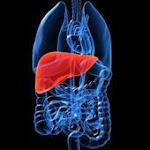Questions to the HepC Community (Hepatitis C / Liver Transplant & Biopsy (Hep C) HCV Blog)
Monday, 11 April 2011
Hi all, still waiting to start tx (treatment) as my HepC nurse and Consultant have had holidays- one straight after the other...bloody frustrating as I want to get cracking.
(Pictured - 'injecting Interferon')
They also said that there is a chance that the HepC treatment drugs, being fairly bloody powerful, could react badly with my immunosuppressant drugs and that I could end up rejecting my new liver - eeek. I suppose if my docs have put me forward tx then they must think its worthwhile...?
Just wondered if any of you within the HepC community had any info on 'pre-dosing' with Ribavarin for a couple of weeks prior to commencing with Interferon?
I have heard of a few people who have done this (geno 1a's like myself) and said it was very successful, especially as they had been non-responders 1st time around and had tried this on their 2nd attempt and WON, any info would be greatly appreciated as been told I am to start tx any time soon .
This is the 1st attempt for me even though HCV took my first liver (my liver was too damaged by the time I was diagnosed with HepC) so anything to improve my chances 'post-transplant' would be good.
I realise also that the jury’s out on this issue as it seems that the people who have 'pre-dosed', highly recommend this action and those that didn’t tend to say ‘stick to yr doctors orders’ – I have to say that I haven’t come across anyone who has 'pre-dosed' and then not achieved the hallowed 'SVR' (Sustained Virological Response - or cured to you and me). If anyone does feel that it’s so contentious an issue that they would rather email me rather than post a comment, then I understand – whether they are for, or against it, I’m trying to get info to make an informed choice.
I also wanted to ask you folks about Anti-Depressants, I was reading an article on HepatitisC NewDrugs (http://goo.gl/fb/v51BG) saying that patients who start treatment from the outset on anti-depressants are far more likely to complete tx than those who don’t. And I wondered if anyone felt they needed pain-killers at any point – I get a lot of abdominal pain but wonder if that’s just because I had a transplant.
Other than that folks all is good and I’m waiting to get on with it, my Hep C Special Nurse rang me to say she has no problem treating me but I have to see the Consultant who got back to work last Friday, once he’s gets to his admin I’ll get an appointment and we should be getting going! Keep everything crossed for me.
Take care everyone… Ian















0 comments:
Post a Comment